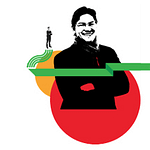The 2nd annual WOWHR Global Conference took place on 10th December, 2020. The event provided speakers and attendees alike the opportunity to hear and discuss key themes including those surrounding leadership, employee engagement, and management strategy. Conference moderator Daria Kryachkova, Vice President of HR Management at GMK Norilskiy Nickel, set the tone of the conference with a very insightful opening which questioned:
– What the ideal of leadership should be
– Identifying what is important and essential for employee prosperity
– How business processes and relationships between individuals should change
– And essentially; how to incorporate people into these changes
The unpredictability of 2020, meant that businesses had to develop and use new management models as strategic foundations, in response to often immediate and rising challenges and a changing landscape. Responses often required the implementation of new business tools, and reinvigorated considerations given to CEO and employee wellbeing, remote and digital working, and the digital workplace.
In line with these considerations arose the concept of Unwritten Ground Rules (UGR’s), as discussed and created by the first speaker Steve Simpson; an international speaker, author and change agent.
UGR’s are used to strategically build and improve workplace cultures. This provokes a complex argument as these rules are rarely ever talked about, yet they have been argued to drive the behaviour of individuals. They help to formulate the perceptions individuals have of how things are done in a particular environment. An example of this is automatically leaving a space between yourself and another person (pre-covid), when deciding where to sit in a waiting room. Another example could be putting your phone on silent in the same situation. Where there are no notices outlining these rules, Steve ascertains that they are learnt through life experiences, and are applied whenever people get together, and he argues, they exist in the workplace.
A good UGR test is a new employee. New employees are able to pick up on cues and clues in the workplace, department or company, and compare them with the company’s representation or public image. This could help to identify whether the company operates in line with their own ethos and values, while also revealing the workplace culture and UGR’s that exist there.
Rather than isolating, subduing and dictating employee behaviour, Steve determines that when formulated by good intent and being constructive, UGR’s could be of great benefit within a business, and for employee wellbeing.
Karen Leong, transformation thought leader, in discussing the future of leadership and HR, introduced the concept of empowering people to take ownership of their own problems. As a leader, a shift in thinking is encouraged from solving problems, to helping people solve problems. The argument of looking down at the problem, to looking up at the person so they look at the problem and solve it themselves, is an interesting concept. It is also one that has been argued to result in an inspiring team, and even more inspiring leaders. Consequently if implemented, leaders could attain a better work/ life balance, including more time to focus on the strategic aspects of the business.
Debra Corey, Chief Pay it Forward Officer at DebCo HR, highlighted the importance of engaging your workforce during these challenging times in 2 ways, through:
– strong culture
– strong connections
She demonstrated the essential elements of being resilient, and able to pivot and adapt in these areas. Strong connections can be initiated through getting to know people, and building relationships.
This could be helped Debra argues, through a more flexible working approach; which is demonstrated to be multi-faceted in its benefits. Some of which include improved engagement, wellbeing and productivity. Irrespective of the changing circumstances and in reflection upon previous outcomes, it is important to figure out how to support this in the long run.
According to Debra, a shift in what has been defined as employee engagement has occurred. This denotes a move from diversity, inclusion and belonging, towards weaving this into everything your company does; into an engagement programme.
Despite the individual differences between our organisations and workforces, it is important to dedicate some quality time towards considering and tailoring an engagement programme and methodology, that complements your individual organisation and workforce.
Author: Laurice Laird




